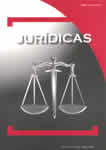Authors
Abstract
Reason in its boldness also requires method, because when discovering liberties, these must be limited in agreement with the method, basic key in order to understand what the Enlightenment has of unique and paradoxical. Paradoxical for closing the cultural moment initiated in the Renaissance, and for opening another moment until today. In that sense, the Enlightenment is a humanism (not in the sense of a better manifestation in the literary and artistic experiences) when looking for its best expression in the fi ght for the rights of man; in the philosophical and scientific fields, when researching for the scientifi c founding of human understandings with roots in scientist-positive knowledge. History, ethnology, philosophy of culture and even sociology begin to be developed and open their possibilities in the same irruption of knowledge.
Keywords
References
HORKHEIMER, Max. (2002). Crítica de la Razón instrumental. Madrid: Trotta.
KANT, Inmanuel. (1985). Filosofía de la historia. México: Fondo de Cultura Económica.
__________ (1998). Crítica de la Razón Práctica. México: Porrúa.
LACROIX, Jean. (1969). Kant. Buenos Aires: Sudamericana.
TOUCHARD, Jean. (1983). Historia de las ideas políticas. Madrid: Técnos.

 PDF (Español)
PDF (Español)
 FLIP
FLIP





















